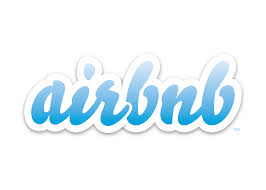Is Airbnb for Real?
Chip Conley, successful founder of boutique hotelier Joie de Vivre is the CEO, the valuation makes it one of the world’s largest lodging companies and the “sharing” economy is here to stay. So, yes, it is for real. The question is, do we as lodging operators embrace Airbnb as friendly competition, treat it like an OTA (online travel agency) or ignore it and hope that it disappears?
Started in 2008, Airbnb has built a global community of millions of people around the world who now use its site to find rooms while traveling. Airbnb takes a small percentage from the billions of dollars’ worth of sales it has facilitated. In 2013 more than 10 million guests stayed at an Airbnb rental, which translated into more than $250 million in revenue, according to Fast Company.
Chip Conley, Ian Schrager and Bill Kimpton were among the first to introduce the boutique hotel. With the hiring of Conley, “Airbnb is the new disrupter” of the hotel industry. The possibility exists that this new entity could begin competing with hotels on a serious level by providing the same exact services that a hotel chain provides sans hotel logo.
Airbnb is in 192 countries, has 600,000 spaces available and 11,000,000 guests have stayed at Airbnb facilities. Basically, there are no regulations, security and fire safety and there are mixed reviews like a brand that has no standards. In addition, problems can work both ways…guests can be worse than the hosts, who are charged a three percent service fee, guests pay 9-12 percent. Insurance coverage is not likely there for guests and there are markets where the impact is potentially significant. Urban markets like Los Angeles, New York or San Francisco may have 100,000 rooms and Airbnb might have 20,000 hosts. This could create lots of economic disruption and it is not going away anytime soon.
In Portland, there is conversation about some negative impacts. One is that landlords could drop their longer-term tenants with one-year leases and turn their apartment building into a hotel. This would further squeeze an already tight rental market and undermine the city’s workforce-housing goals stated in their community plan.
Airbnb also has a negative impact when it comes to landlord versus tenant issues. In one example in particular, the landlord was unable to evict a challenging tenant with the same ease that hotels can. In this instance, the landlord was required to go through the process much like an apartment owner must do in order to evict the tenant. The eviction process can take months and cost the owner thousands of dollars in lawyer fees. Airbnb states that it is the owner’s responsibility to know the laws of their state in order to handle situations like this
Keep in mind that Airbnb is not a sure thing; the company faces numerous legal challenges including the fact that Airbnb properties are unregulated and untaxed. Further, there are security concerns about guests and property owners alike. Despite these concerns, many business travelers are flocking to Airbnb and this appears to be the primary reason investors reportedly pushed the company’s valuation to $10 billion last month. This valuation makes Airbnb one of the most valuable lodging companies on the planet. According to my friend Ed Watkins of HotelNewsNow, one argument for using Airbnb to sell excess inventory is that it is cheaper than using an online travel agency. Whereas an OTA might charge a hotel as much as 25 percent commission on a booking, Airbnb charges hosts 3 percent plus a service fee.
The truth of the matter is that change is happening quickly and this is just one of many changes occurring in hospitality. Not every hotelier loves OTAs and even fewer will appreciate Airbnb. But our opinion is, “embrace change or it will squeeze you back much harder than the gentle squeeze you will be providing with an embrace.” We welcome Airbnb and the positive and unforeseen changes it will bring to our industry. One thing is for sure. Airbnb has a new logo, lots of public relations, a strong booking platform and a strong leader. Let’s just appreciate the next two years of strong RevPar and NOI gains and hope that when the music stops we are all in a better place.
Robert A. Rauch, CHA
Rauch is President of R. A. Rauch & Associates, Inc. The firm owns, operates and provides consulting services to hotels. He is a Faculty Associate at Arizona State University and has served on numerous hotel industry boards.








